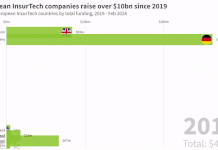Supply chain stakeholders, including businesses and individuals, are grappling with an increasing array of regulatory, financial, environmental, and reputational risks, taking a holistic view to integrity risk has never been more important.
According to Quantexa, the mounting public pressure for organisations to adopt ethical practices, address fraud and corruption, and report on environmental, social and governance (ESG) risks, is adding to this pressure. The recent supply chain disruptions, compounded by Covid-19 and the conflict in Ukraine, have fuelled opportunities for unethical practices, while pressures on procurement and supply chain teams to swiftly onboard new suppliers have amplified.
The fact remains that organisations can no longer hide behind third-party behaviours when it comes to corruption, sanctions, modern slavery, or greenwashing. Regulators and the public have made their stance clear on these matters.
However, Quantexa said, integrity risk screening for suppliers, despite its increasing importance, continues to be a challenge for organisations. Reasons for these challenges are manifold and complex. They include the inherent difficulty in detecting, proving and prosecuting risks such as fraud, corruption, conflicts, and anti-competitive practices. Furthermore, the responsibility for screening often lies with multiple “risk owners”, despite many integrity risks being interlinked. Compliance and reporting obligations are continually changing, and data might be outdated, unreliable or siloed across the organisation. Legacy technology for screening often results in numerous false positives, necessitating manual review, which consumes valuable time and resources.
Organisations have had to adapt to these challenges by performing risk-based or sample screening, often based on expected spend, the nature of goods or services provided, and the jurisdiction of the supplier.
They rely on information provided directly by the supplier and/or self-certifications, and limit screening to the onboarding stage in many cases. While these compromises are deemed necessary for efficient use of compliance resources, they expose organisations to significant risk and might not meet regulatory requirements.
To address these challenges, Quantexa argues a more contextual approach is needed. Combining internal and external data sources with advanced technology can give organisations a holistic view of each supplier to uncover hidden connections, bolster supply chain integrity, and deliver better outcomes.
Moving away from a one-dimensional risk and/or data-source approach to screening allows organisations to consider a greater number of risk signals across a supplier’s network, thereby identifying genuine high-risk suppliers for review without generating high numbers of false positives.
A Supply Chain Integrity Solution enables supplier screening and contextual monitoring to detect and investigate employees and third parties engaging in supplier integrity risks. Leveraging decision intelligence will allow organisations to connect multiple internal and external datasets at scale, providing a contextual single supplier view enriched with intelligence across all channels and threats. This empowers teams to make better, more trusted operational decisions.
Keep up with all the latest FinTech news here.
Copyright © 2023 FinTech Global











